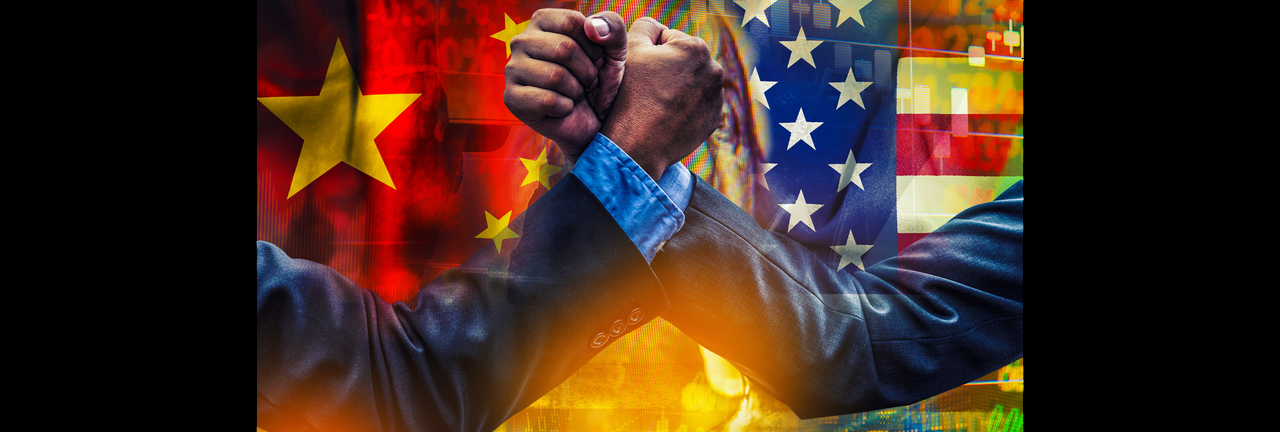

Aug
As mentioned rather frequently here at ChinaFund.com, pretty much any intellectually honest market observer with a firm grasp on the very basics in terms of arithmetic can determine that more likely than not, it is only a matter of time until China surpasses the United State, at least in terms of nominal GDP. Furthermore, as time passes, it also gets closer and closer to the West from the perspective of a wide range of metrics such as the GDP per capita.
Still, as also mentioned on our website, there is more to being the number one superpower than being the number one economic superpower in light of the fact that there are a wide range of forces at play rather than simply economic ones: military forces, geopolitical influence forces, cultural forces and the list could go on and on.
Needless to say, China’s ascension to “supremacy” will most likely be anything but straightforward, just like the United States did not exactly have what one would call a smooth path either. Indeed, from civil war to wars with foreign opponents, the road to success of the US has been paved with a wide range of challenges and the same principle is valid when it comes to the United Kingdom and any other past superpower.
Can the transition to supremacy of China be peaceful?
While nothing is impossible, the probability of China’s ascension being peaceful depends on how exactly the term “peaceful” is defined. If we are to define it as uneventful in general or in other words, assume that a peaceful ascension is one where military challenges altogether are completely absent, then the probability of that happening is very (very!) close to zero in our opinion. Simply put, there is no such thing as a historical example involving a superpower having achieved its status in the absence of challenges on the military front as well and while past performance does not guarantee future results, let’s just say we have valid reasons to be skeptical.
If we narrow down the definition of “peaceful” however and limit ourselves to considering the term one which describes the absence of a direct military confrontation between the EXISTING superpower and the EMERGING superpower then yes, the probability goes up quite a bit, especially in light of the nature of 2020’s worldwide economy.
Even so, we need to be aware of the Thucydides Trap dimension (one covered through a dedicated article, available HERE) or in other words, the fact that throughout history, the majority of conflicts between existing superpowers and emerging ones have resulted in direct military confrontations between the two. However, as we get close to the present, the likelihood of the transition in question not involving a direct confrontation between the two entities increases. As an example, we have the fact that the United Kingdom and United States did not engage in a military confrontation while the US was transitioning toward becoming the dominant superpower of the world (of course, if we move further down the road and look at the more distant past, we can easily identify US – UK tension situations but that would be intellectually dishonest in light of our existing conversation due to the fact that at that point, the United States was hardly interested in “branding” itself as a contender with respect to the goal of becoming a superpower) and on the contrary, meaningful cooperation was the norm.
Will the same principle be valid when it comes to the US and China?
This is where things get tricky because needless to say, identifying common denominators in terms of values between the United States and the United Kingdom is multiple orders of magnitude easier than identifying common denominators between the United States and China. Therefore, it would be fairly safe to state that the likelihood of China’s hypothetical transition to supremacy being let’s say uninterrupted by the United States tends to be on the lower side.
Still, we have reasons to be hopeful (in light of the fact that a peaceful resolution is in the best interest of all parties involved, not just the two nations) for reasons which revolve around… well, economics. Simply put, there would be so much to lose in the context of a direct military confrontation between economic superpowers that there are strong (to put it mildly) disincentives associated with endeavors that would lead to that.
In a way, a valid case could be made that just like nuclear war represents a “Mutually Assured Destruction” scenario, any type of direct military confrontation between two remarkably powerful nations represents a “Mutually Assured Economic Destruction” one. Furthermore, these two countries hardly live in bubbles. On the contrary, a lot of thought needs to be given to what happens next and what the various trading partners of the countries in question have to say about the conflict resolution mechanisms between the two. To put it differently, there are also extremely strong forces coming from the direction of trading partners to keep things peaceful because such a conflict would not be in the best interest of the many stakeholders involved.
Is it true that it isn’t difficult to envision scenarios in which a direct military confrontation occurs anyway? Yes, it is, from scenarios revolving around economic collapse situations leading to desperate scapegoat hunts and finger pointing campaigns that ultimately transition into an all-out war to scenarios involving black swan events as Nassim Taleb calls them, unexpected developments which render the past proverbial rules of the game obsolete.
As a conclusion, while it is unlikely that the ascension to supremacy of China can occur in the complete absence of military challenges, the world has valid reasons to be optimistic that a direct confrontation between superpowers can be avoided this time around, while, of course, also understanding that the ascension of China itself to undisputed superpower status is anything but guaranteed.
